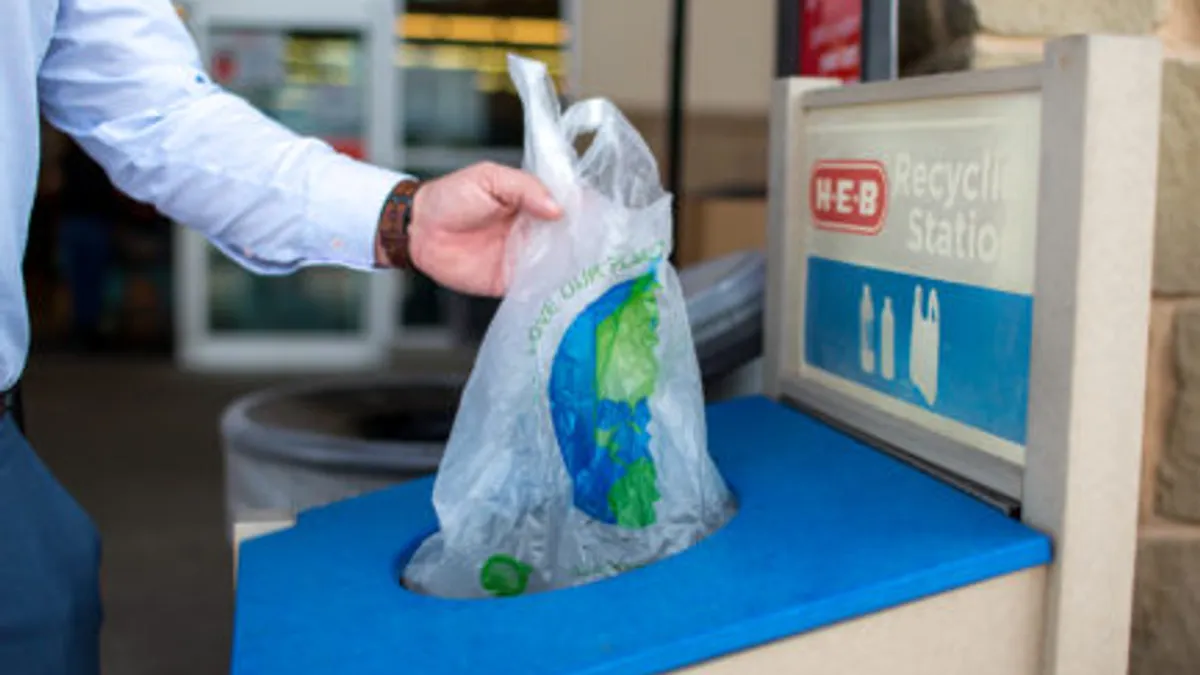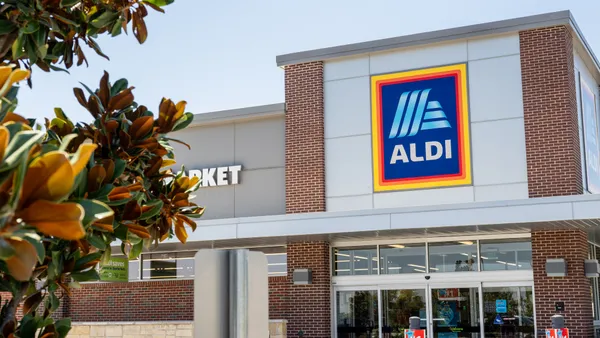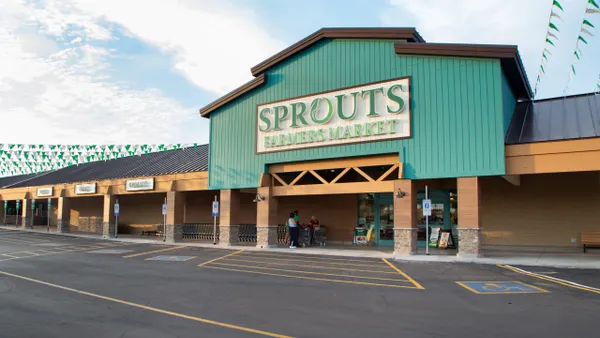Dive Brief:
- Albertsons aims to focus on reducing carbon emissions with new goals it plans to submit to the Science Based Targets initiative (SBTi), the grocer announced on Wednesday. The targets will align the grocery chain with the Paris Climate Agreement, which the U.S. reentered in February after a brief exit during the Trump administration.
- Separately, Hannaford Supermarkets, a U.S. banner under Ahold Delhaize, announced on Tuesday it hit the goal of diverting and donating all of its stores’ unsold food, claiming it’s the first grocer in New England and New York to completely keep its food waste out of landfills. Meanwhile, H-E-B and Kroger said this week they are ramping up programs that encourage shoppers to recycle.
- Grocers have placed special emphasis on their sustainability goals and progress in the days leading up to Earth Day on April 22.
Dive Insight:
The pandemic paused some grocers’ sustainability efforts, but it hasn’t stopped the industry from tackling the multitude of factors contributing to climate change.
Grocers are bolstered in their sustainability efforts by shoppers demanding more environmental protection and a stronger political focus on the climate driven by the Biden administration.
For Albertsons, the new focus on creating and submitting carbon emissions targets to SBTi resulted from stakeholder feedback prioritizing energy and emissions efforts in the recent assessment of the company’s Environmental, Social, Governance (ESG) strategy.
Albertsons noted in its press release it is working to update its long-term carbon emissions plans to include ways to cut emissions from its direct operations and indirect value chain. In its endeavors, Albertsons is seeking support from SBTi, a joint venture between nonprofit CDP, the United Nations Global Compact, the World Resources Institute and the World Wide Fund for Nature that helps companies meet their greenhouse gas emissions targets. United Natural Foods, Inc. announced in December plans to submit its climate change goals to SBTi.
Other grocers, like Hannaford and Kroger, are touting their efforts at reducing food waste efforts. Hannaford said it kept 65 million pounds of food waste out of landfills in 2020 through several measures, including donating food to people who are food insecure and to farmers, who can use it for animal feed. The grocery chain also turned surplus food into energy through its partnership with food waste recycling company Agri-Cycle.
Hannaford’s sustainability efforts come at a time when its parent company, Ahold Delhaize, has taken on several new sustainability targets, from carbon emissions reductions to policies for genetically modified food and farm animal welfare.
Meanwhile, Kroger announced on Tuesday that its Zero Hunger Zero Waste initiative, which aims to end hunger and food waste by 2025, hit several key goals in 2020. This includes achieving 81% waste diversion from landfills company-wide and adding food waste recycling programs to 165 stores. The grocer also said 31 of its 34 company-operated manufacturing plants are now zero waste facilities.
On Thursday, Kroger revealed it's growing its Simple Truth Recycling Program, which was developed with recycling company TerraCycle and allows shoppers to mail in flexible plastic packaging from Kroger’s private label products. The expansion now includes all of the grocer's private label brands and encompasses almost 2,500 products.
In addition, H-E-B is ramping up its recycling focus with plans to launch an education campaign through social media and in-store signage, along with making its in-store recycling bins more visible.
By joining How2Recycle, H-E-B can simplify recycling for its consumers with the program’s labeling for how and which items’ packaging can get recycled. The Texas grocer already uses the How2Recycle labels on hundreds of its branded and national products, and plans to have more than 1,500 items with the H-E-B brand labeled by the end of the year, according to a press release.










